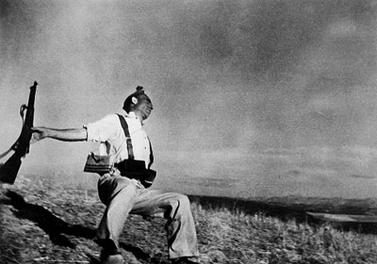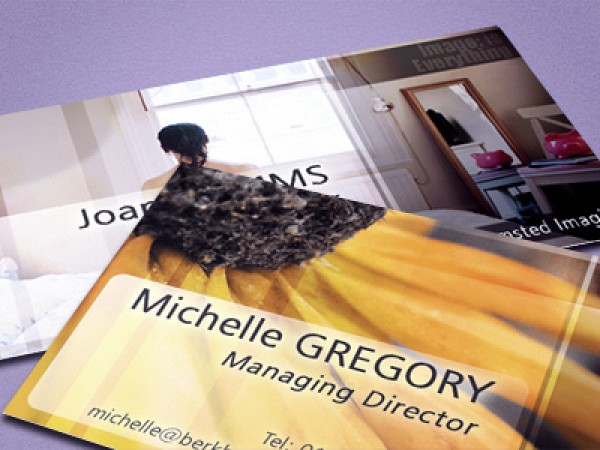Let me tell you a few secrets.
Taking a brilliant photo, every single time, just isn’t going to happen. No matter how good you are or how illustrious your reputation, you’re going to make mistakes. Presumably, even the likes of Adams, Capa and Lange, will've accidentally left the lens cap on, at least once in their careers?
For mere mortals, like us, mistakes are part and parcel of photography. A mistake can be as mundane as a bit of camera shake or as marvellous as the one with the red eye that makes Nan look like an extra from the Exorcist. You just have to live with it. You learn from it. You make the best of it and you move on.
But here’s another secret.
When Capa photographed the infamous Falling Soldier, he captured an undeniably iconic image and one which, by galvanising support for the Republican cause, probably helped shape the outcome of the Spanish Civil War,

© Cornell Capa/Magnum Photos: Historic Photo - Fair Use Exempt
but whether or not it is a technically outstanding photo is up for question.
If you or I had taken that photo, critics would ask why we’d cropped off both of the soldier’s feet, question the limited dynamic range and complain that the focus was a bit out. Being a genius and possibly, although probably not under sniper fire, Capa is forgiven such trifles.
Oh wait… there’s more, although this isn't really a secret, it's more of an inconvenient truth
You need freedom to create Art. It's not an optional extra and it's not up for negotiation.
The moment that an artist's freedom to express themselves, however they choose, is made subject to exemptions, review or oversight, their ability to create Art evaporates. In a fearful world, this might seem like a misplaced or, even, naive idea - but what the heck - it is true.
For photographers, this freedom is, of course, the right to document both the good and the bad in society and the right to publish without fear of reprisal.
Capa's photo, staged or not, was a hammer blow to the Spanish Nationalist's cause... yet, its impact was only felt because it was published and reproduced. It is not hard to imagine, how minimal its impact would have been, if the Spanish Nationalists had, had the ability to censor it or prevent it from being published.
Art demands controversy. Saying anything meaningful or worthwhile, almost inevitably means you're going to be saying something that someone, somewhere won't like.
...and that's a good thing. A really good and important thing, both for individuals and society as a whole. It's not that we want to offend other people, unnecessarily. It's just that, if we want to be able to express our own ideas and opinions freely, we have to accept that this right applies to other people and they have a right to express their ideas too, no matter how objectionable they may be to us.
Additionally, these sorts of external freedoms, the ones they talk about in civil liberties textbooks, important though they are, are not the whole picture.
Photographers, and other artists, must have the psychological freedom and propensity to create; and this internal freedom is fragile.
Consider a hypothetical world where you have a legal right to freedom of expression, but your every action from birth to grave is recorded: and those recordings are in the hands of 3rd party. You don't know who they are or what they'll do with those recordings. You just know that everything you've ever done, everything you'll ever do; no matter how shameful, embarrassing, stupid, squelchy or unpleasant will be documented. Total surveillance. Everywhere you go, every word you say... they'll be watching you. That legal right doesn't seem so important now, does it? I mean, sure, you could go that Peace March, you could have that conversation with a taxi driver about immigration, you could photograph difficult subjects (brilliantly), you could exhibit those photos in your gallery or you could write an academic paper about those photos... but, you probably won't. Not because you are afraid, but simply because you know that you are subject to surveillance.
Photographers, and other artists, must also overcome the fear of failure and their natural tendency to self censor.
If you're stifling a snort of derision and thinking, "No. I am, definitely, not.", then I, especially, mean you.
The moment you pick up a camera, or even, reach for your phone, to take a photo, you become an Artist. You may not have the luck, determination, vision, imagination or sheer bloody mindedness needed to place your own work alongside the likes of Adams, Capa and Mapplethorpe; but there is nothing, intrinsically different about what you are doing. They took photos. Now, you are taking photos.
And, you shouldn't confuse art with wealth or infamy. Van Gogh died penniless and unrecognised: and somewhere, priceless old masters have sat unseen and undisturbed for 70 odd years[1]. Indeed, if we got out our 3rd year maths books and drew a diagram, it might look something like this:
Everyone loves a statistically unsubstantiated venn diagram
So, whilst it is a shame that your photos will, probably, never become iconic or change hands for ridiculous sums of money, they do stand a pretty good chance of being one of the few things that your Grandchildren and, maybe even, your Great-Great Grandchildren will have to remember you by.
And in our book, that makes them pretty important works of Art.
